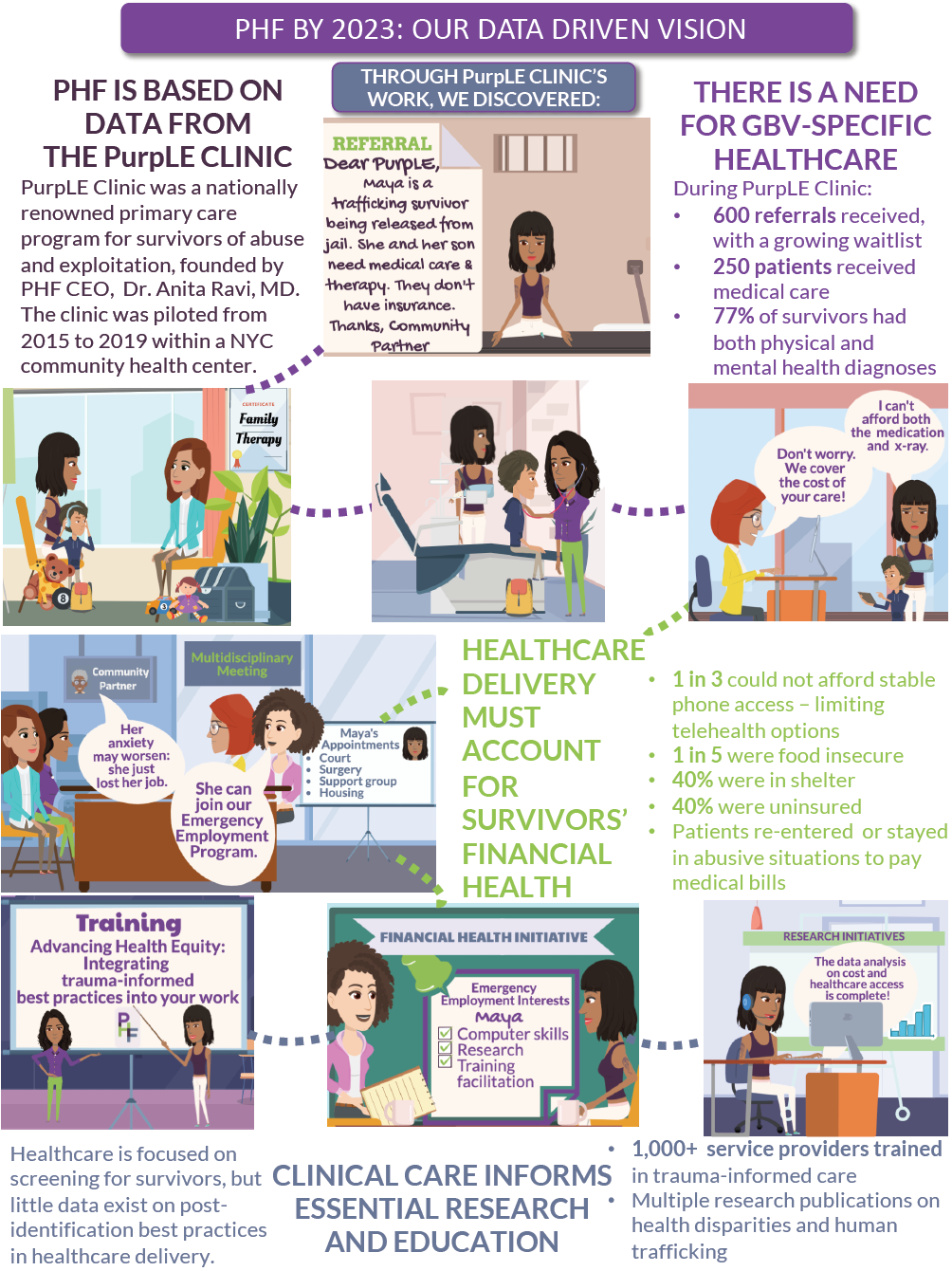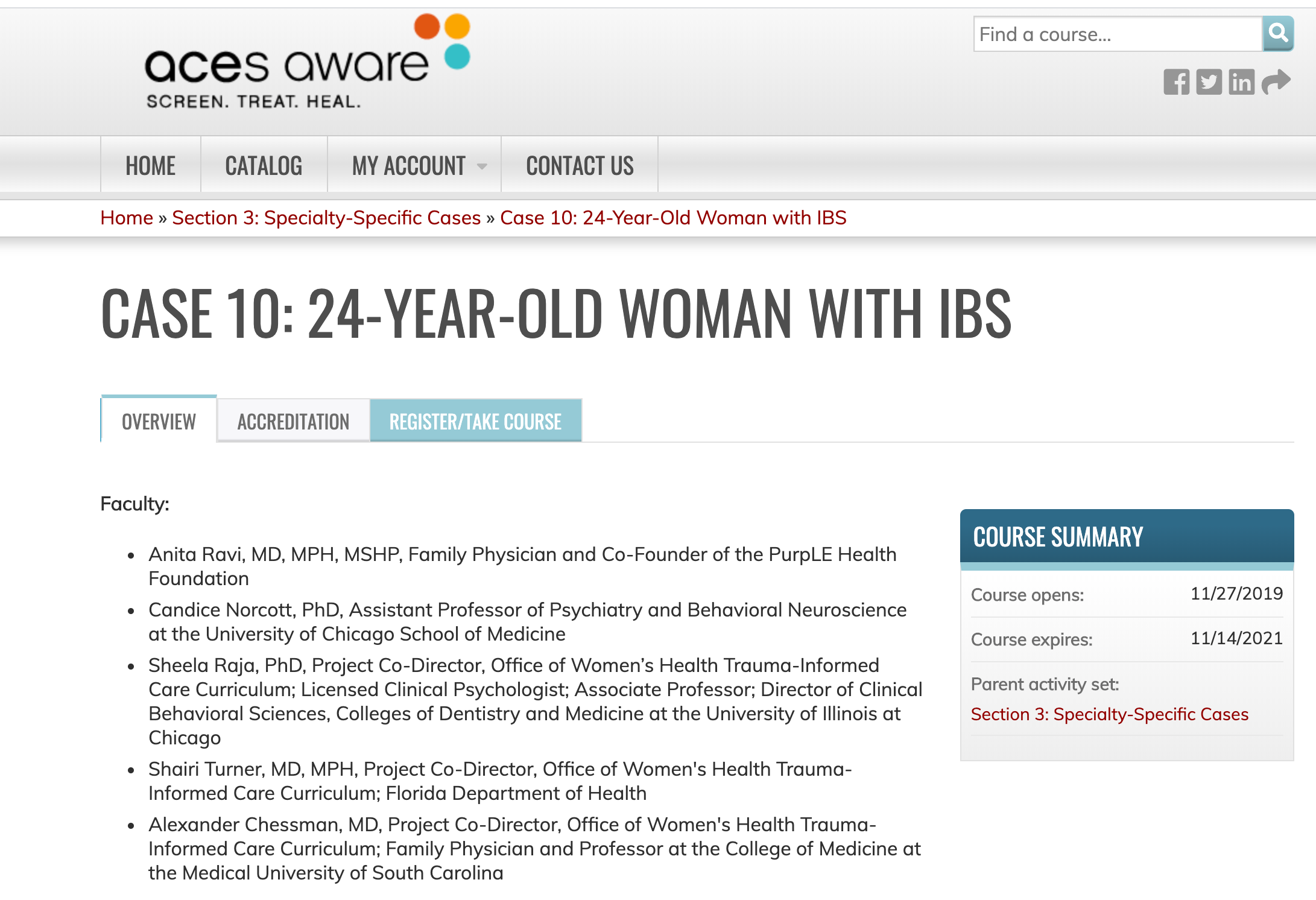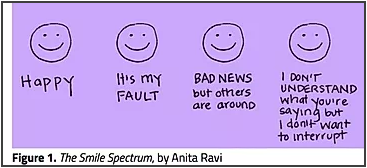Publications
Physicians commonly care for survivors of trauma, but they may not always realize it. This article provide an overview of trauma-informed care and practical approaches to implementing trauma-informed care in clinical settings.
Videos
In this 2017 webinar, Dr. Ravi shares best practices in implementing a trauma-informed approach in clinical practice. Using case studies and cartoons, Dr. Ravi addresses topics like how to approach interpersonal and environmental communication; how to alter practices and workflows; and considerations on the patient perspective.
Online Modules
Online module on Adverse Childhood Experiences developed by national experts in trauma-informed care, including Dr. Ravi.
News Articles
Dr. Ravi's approach to care is featured in this article on how provider communication will lead to more patient trust and better overall patient-provider relationships.
Practice-based Pearls
Dr. Ravi was invited to be a guest blogger for the Reproductive Health Access Project during Sexual Assault Awareness Month. In Part 1, she shares how her experiences working with incarcerated sex trafficking survivors informed her approach to healthcare delivery.
Sexual Assault Awareness Month Blog Part 2:
"Z53.21 is the diagnosis code I dread. When we do our medical charting, it’s the code that we use for: “Procedure and treatment not carried out due to patient leaving prior to being seen by health care provider”. In medical slang we say “left without being seen.”
Sexual Assault Awareness Month Blog Part 3:
"The clinical team could not have known all of these things. But the unintended impact of their inclusions and omissions lives on in the medical charts of our patients, with far-reaching consequences- particularly for those who are already vulnerable to poor healthcare."
This medical narrative highlights ways in which comics reflect Dr. Ravi's experience as a primary care physician striving to offer sensitive care to people who have experienced sexual violence.
This illustrated essay provides a PurpLE perspective to counter misconceptions regarding the circumstances of people who experience sexual violence.
This illustrated essay describes the experience of vicarious trauma from a PurpLE perspective.










